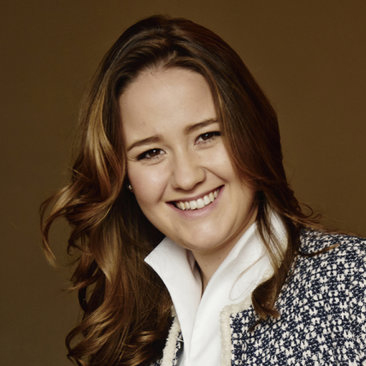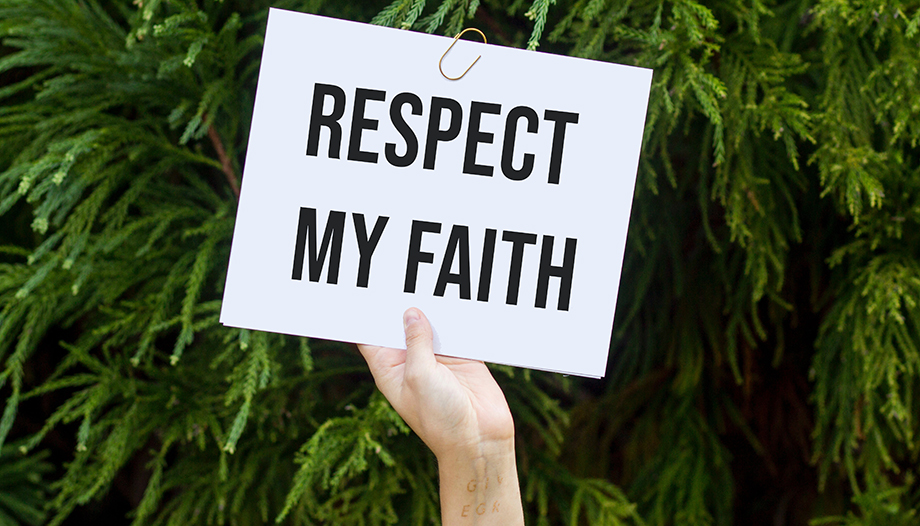"The less knowledge or education a Christian has about his own faith, the more likely he is to be self-censured" so states Madeleine Enzlbergerexecutive director of the Observatory on Intolerance and Discrimination against Christians in Europe (OIDAC Europe).
This platform has just published its latest report on attacks on religious freedom in Europe, in which more than 500 cases of hate crimes against the Christian faith in various European countries and areas are reported.
The report, launched as part of the International Day for Tolerance celebrated every November 16, shows how today's rate of hate crimes and growing secular intolerance are having a crippling effect (chilling effect) on the religious freedom of Christians.
In many Western societies we are faced with the reality of a lack of faith formation among Christians themselves that hinders their defense of core issues such as the dignity of life or the role of the Church in society... Do we have the key challenge in education? How to address such a broad task?
-One of the main findings of our recent study on the phenomenon of self-censorship among Christians in Germany and France revealed that the level of education of Christians correlates significantly with their tendency to self-censor.
This means that the less knowledge or formation a Christian has about his or her own faithThe more likely it is to self-censure.
They will do so because they do not feel confident enough to publicly express their opinion, which is often viewed critically by the public, simply a problem of low self-esteem due to lack of knowledge. We also found that it is a problem that affects Catholics more than Protestants.
In short, it is not a problem that can only be solved by generating more theological knowledge, but a personal and relational belief that manifests itself in the daily life and identity of a believer.
For a person to develop this level of faith, he or she needs sufficient space and freedom in the private and public sphere.
If, for example, a young person faces persistent discrimination or intolerance or sees peers suffering social or legal punishment for expressing opinions in accordance with his or her belief, in some cases the person is likely to conclude that the social costs of holding his or her belief are too high.
As a result, the individual might even abandon his or her faith altogether. This is a development that cannot be desirable in any pluralistic and truly tolerant society.
To address this problem, it is important to counteract the two main problems of this eroded development.
First, freedom of religion and other intrinsically linked fundamental freedoms, such as freedom of expression, must be better monitored and protected, especially in universities.
It is necessary to stop and reverse the so-called chilling effect (paralyzing effect) that even translates into a culture of annulment, not only for the benefit of Christians but of society as a whole.
Secondly, believers need safe spaces to be able to grow in their faith and, to a certain extent, also some apologetic formation.
Christians are called to speak the truth when asked to do so, or when they see an injustice being done, and this requires more and more courage.
Madeleine Enzlberger. Executive Director OIDAC Europe
Many Christians consider that defending a strong position is contrary to respect for the different ways of life or beliefs that surround us. How can we avoid the trap of self-censorship disguised as tolerance or prudence?
-This is more a spiritual question than a practical one, I would say. There is no single concept that can be applied to everyone. You also have to take into account that different denominations have different positions on some issues and on how to deal with them.
One approach that could be considered a general strategy is to discern one's own heart's motivation and posture when we speak.
A hardened heart, the perception that we are fighting against people or fear are generally poor advice. Always remember that we are not fighting against someone, but for someone.
The Christians are called to tell the truth when they are asked, or when they see an injustice being done, and this requires more and more courage.
Discerning one's own heart is a good navigator and holding stakeholders accountable to democratic principles.
Christians in Europe are not only believers, but also citizens of democratic countries, who put tolerance on their banner.
Is self-censorship or imposed censorship more dangerous?
-The answer to this question must be differentiated, because both forms of censorship can be very harmful.

Ultimately, state-imposed censorship is more dangerous because it is more widespread. Compared to self-censorship, it is more visible and, usually, state censorship is linked to legal punishment. Consequently, the chilling effect is very severe, and people will not only be censored but will censor themselves, which is the ultimate goal of state-imposed censorship.
It also creates a lack of trust among individuals because you never know who you can trust or not and who you can tell something to or not. State-imposed censorship is therefore one of the most essential features of a totalitarian regime in contrast to a liberal democracy.
The danger of self-censorship is that it is often not visible at first glance, and it can also occur in democracies because it is a special form of "regulating" an existing social conflict. In our time the conflict revolves above all around the foundations of our morals, which in turn function as the basis for the regulation of our coexistence in a society.
As self-censorship is a more subtle social phenomenon, it slowly erodes freedom of expression and diverse and vital public and private discourses. Without freedom of expression, religious freedom cannot be fully guaranteed.
Without the free exchange of ideas in public discourse, democracies cannot evolve and cease to be truly representative.
We are at a time when, in the public sphere, any religious sign is avoided or a person, leader, etc. who attends a religious service is criticized. Is it really a lack of plurality or respect for other believers or atheists to show not only a religious but also a spiritual dimension of the human being?
The assumption that non-religious people base their morality or thinking on a "neutral" truth without values is simply false.
All people have beliefs that are based on a fundamental truth, even when this truth does not involve God. This is one of the biggest mistakes in the world today. This means that all people derive their decisions or behaviors from some form of truth, there is no exemption.
Leaving religion out of the equation when trying to understand social reality will always lead to a biased result.
Madeleine Enzlberger. Executive Director OIDAC Europe
The second misconception is that secularity means that faith does not belong in the public space. This is not true either. Secularity, which separates the Church from the State and guarantees a healthy relationship between the two, is generally neutral with respect to religion.
– Supernatural secularism means that the State has neither a positive nor a negative position towards the Church.. In contrast, secularism, which is secularity infused with ideology, has a specifically anti-religious and often anti-Christian bias. Therefore, we speak of the dynamics of secular intolerance as the main driver of the cases of intolerance and discrimination we observe against Christians in Europe.
A third misconception is that a personal belief is something that could be compared to a lifestyle or a chosen hobby, which is not the case, in fact, it is one of the preponderant identity markers in people. Leaving religion out of the equation when we try to understand social reality it will always lead us to a biased result.
In light of these three misconceptions, it is fair to say that true respect and diversity can only exist if non-believers and believers consider themselves equal because there is no difference between them as both groups follow their way of understanding truth. A truth based on faith is worth absolutely no less than a truth not derived from faith. This is the most essential point.
OIDAC's annual report
The study conducted by OIDAC (Observatory on Intolerance and Discrimination against Christians in Europe) is based primarily on an analysis of the current treatment of freedom of religion and conscience.
To this end, the study focuses on three fundamental elements: freedom of expression, parental authority, freedom of assembly and freedom of contract. OIDAC has collected the data mainly through the Observatory's own archives, interviews, questionnaires, government reports, official statistics and the media.
Two experts on religious freedom, Janet Epp Buckingham and Todd Huizinga, also contributed to the study.
In 2021, OIDAC recorded hate crimes against Christians in 19 European countries, 14 of which involved some form of physical assault and 4 cases were murders.
On the other hand, during the same year several Christian organizations were banned from social platforms for having dissenting opinions, while in those same media violent comments and speeches against Christians were allowed.
The report also reflects increased self-censorship by Christians throughout 2021 in five areas: education, the workplace, the public sphere, private relationships and the media.
The results of the study indicate that France and Germany are the countries with the highest concentration of hate crimes, followed by Italy, Poland, the United Kingdom and Spain.
Most of the crimes consist of vandalism (graffiti, damage to property and desecration) and, in second place, are the theft of offerings, religious objects, consecrated hosts and the movable property of churches.
During religious holidays, such as Christmas, there is a concentration of hate crimes against Christians, perpetrated mainly by Satanists, Islamists and extreme left-wing political groups.
In conclusion, the IOPAC report examines the difficulties faced by practicing Christians in Europe, due to social hostility, hate crimes, discriminatory treatment and stereotyping.
These facts harm fundamental freedoms whose protection, according to the Observatory, "is vital to maintain a democratic society, and to promote tolerance, peace and respect for its members".








